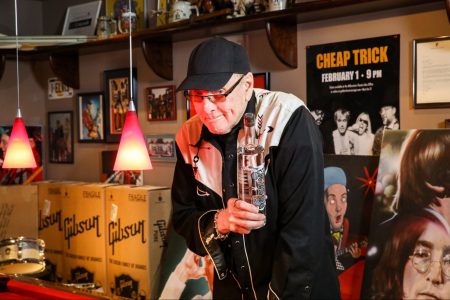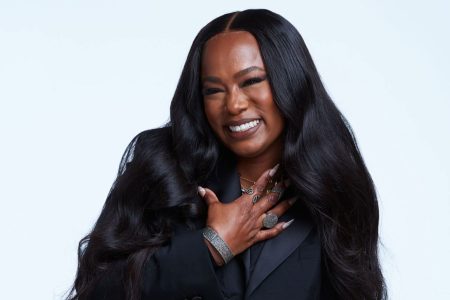The road to franchise success is rarely easy. Each of these founders faced personal struggles, roadblocks, and moments of doubt. But they kept going. These stories are more than just about building businesses — they’re about turning challenges into triumphs and proving that, sometimes, the most powerful ideas come from the hardest times.
Related: Considering franchise ownership? Get started now to find your personalized list of franchises that match your lifestyle, interests and budget.
Anne Beiler – Auntie Anne’s Pretzels
Imagine opening a small pretzel stand — not for fame or fortune, but as a way to heal. Anne Beiler’s journey started with heartbreak. She lost her young daughter in a tragic accident, a pain no parent can imagine. She needed something to pull her through the grief. So, she opened a tiny pretzel stand. Her goal? Raise money to open a counseling center to help others dealing with their own struggles.
It was a humble start. Just one stand in a local market, with Anne rolling and twisting each pretzel by hand. But customers were drawn to something more than just the taste. They felt Anne’s warmth, the love she put into her business and her dedication to something bigger than pretzels. Soon, word spread.
What began as one stand grew into hundreds. Auntie Anne’s became a brand known for its simple, delicious pretzels and the story behind them. Her journey is a reminder: sometimes, the most meaningful successes come from our deepest losses. Anne’s story teaches us that with purpose, even the smallest start can have a big impact.
Related: The Critical First 100 Days of Onboarding — What You’re Likely Overlooking That Could Make or Break Your New Hire
Jimmy John Liautaud – Jimmy John’s
When Jimmy John Liautaud barely graduated high school, his options were slim: join the army or start his own business. With a $25,000 loan from his father, Jimmy decided to give the latter a shot.
So, he opened a sandwich shop. It was bare-bones. No fancy equipment, no flashy signage. He couldn’t even afford ice for the sodas —everything was served at room temperature. But Jimmy was scrappy, and he had a knack for knowing what people liked. He focused on fresh ingredients, quick service, and grassroots marketing.
He went door-to-door, handing out samples and talking to anyone listening. And it worked. Slowly, Jimmy’s little sandwich shop started gaining a loyal following. It wasn’t just the sandwiches that people loved — it was Jimmy’s grit and determination. He wasn’t selling a product; he was sharing a piece of himself.
Today, Jimmy John’s is a household name, with thousands of locations. His story proves that big dreams don’t need big beginnings. Sometimes, all it takes is a little bravery and a willingness to start small.
Related: Learn the Secrets of Running 20+ Businesses as a Side Hustle — Finding and Nurturing Your ‘STIC People’
Fred DeLuca – Subway
Fred DeLuca was just 17 when he borrowed $1,000 to open his first sandwich shop. He needed a way to pay for college and figured a small business could help. The shop was called “Pete’s Super Submarines,” with a quirky subway theme inspired by New York City.
Fred’s approach was simple: fresh ingredients and customizable sandwiches. He believed people should be able to create their own meals, the way they liked. He didn’t have a big marketing budget or a fancy location. Just a counter, some ingredients, and a friendly smile.
And it worked. Customers loved the flexibility and the freshness. Soon, Fred’s little shop became a local favorite. He decided to rebrand, calling it “Subway,” and started exploring the idea of franchising. That one small shop grew into a global chain with thousands of locations worldwide.
Fred’s story is a reminder that even the smallest ideas can have the biggest impact. With a little vision, and a lot of commitment, you can turn a humble sandwich shop into an empire.
Related: See The Entrepreneur 2024 Top Franchise Supplier List
Colonel Harland Sanders – KFC
Colonel Harland Sanders’ story is a testament to resilience. His journey didn’t begin until he was 65. Most people would have retired, but not the Colonel. After his roadside restaurant closed due to a new highway reroute, Sanders was left with nothing but a fried chicken recipe and the will to keep going. So, he packed up his pressure cooker, hit the road, and started pitching his chicken to local restaurants. It was anything but glamorous. He faced rejection after rejection, often sleeping in his car and giving out free samples to anyone who’d try it.
But Sanders didn’t quit. Finally, he convinced a restaurant owner to add his chicken to the menu. And that was the turning point. Word got around, and soon Kentucky Fried Chicken started spreading across the country. Eventually, it became one of the most recognizable franchises in the world.
The Colonel’s story is a lesson in persistence. Age, setbacks, rejection — none of it mattered. He believed in his chicken, and he believed in himself. His journey is proof that it’s never too late to chase a dream.
Related: Taking Control of Your Life Through Franchising (Webinar)
Ray Kroc – McDonald’s
Ray Kroc didn’t invent McDonald’s, but he transformed it into the empire we know today. At 52, Kroc was a milkshake machine salesman, struggling to make ends meet. Then, he came across a small burger stand run by the McDonald brothers. They had something unique — fast, consistent, affordable food. Kroc saw potential and decided to join forces with the brothers, eventually buying them out.
Kroc took the McDonald brothers’ idea and scaled it up. He introduced assembly-line methods, strict quality standards, and an emphasis on consistency. Every burger, every fry, every milkshake was made the same way, every time. It was a simple idea, but it was powerful. Customers knew exactly what to expect when they walked into a McDonald’s, no matter where they were.
Ray’s story isn’t about inventing something new; it’s about doing the basics right and scaling it up. His dedication to efficiency and consistency didn’t just change McDonald’s—it reshaped the entire fast-food industry. His journey is a reminder that sometimes, success isn’t about flashy innovation, it’s about perfecting the essentials.
These founders didn’t just build businesses — they built legacies. They turned their struggles, their grit, and their unique visions into something larger than themselves. Each one of them faced their own set of challenges, from personal loss to financial setbacks to countless rejections. But they pushed through. They believed in what they were building.
Today, these brands are household names. And their stories are a powerful reminder that success is about more than money or fame. It’s about resilience, courage, and the willingness to keep going, even when the odds are stacked against you.
Want to learn from these journeys? Take a page from their playbook. Dream big, start small, and keep going. Because you never know — your small idea might just become the next big thing.
Related: Find Out Which Brands Have Ranked on the Franchise 500 for Longest, Earning a Spot In our New ‘Hall of Fame’
Read the full article here









